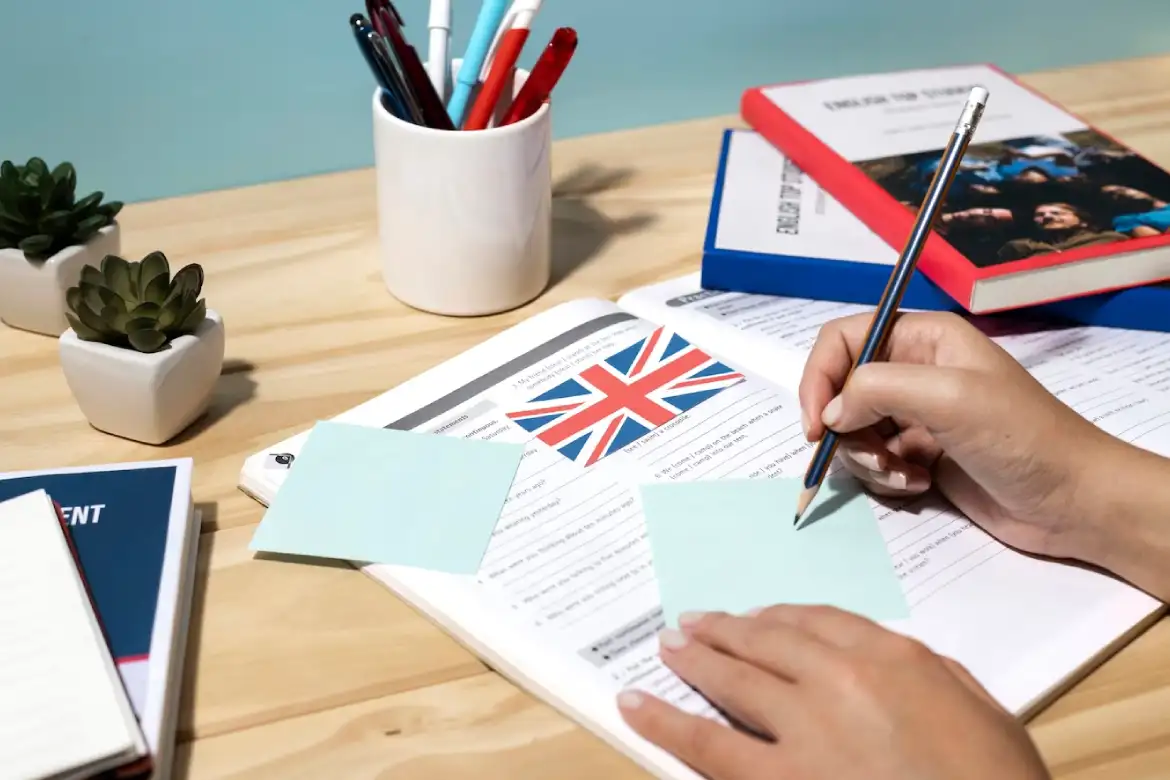For those applying for British citizenship by naturalisation, ILR and other applications part of the eligibility criteria includes the English language requirement. In this blog discover everything you need to know about the English language proficiency test and exemptions.
Who must take the British Citizenship Language (English) test?
If you are aged between 18 and 65 years old and applying for one of the following:
- British citizenship by naturalisation.
- ILR (Indefinite Leave to Remain) also known as ‘settlement’.
There are also certain visas for which you must take the English language test, such as:
- Innovator Founder Visa.
- Skilled Worker Visa.
- Student Visa.
- High Potential Individual Visa.
Exemptions to the British Citizenship Language (English) requirement
Some applicants are exempt from the English language requirement:
- Those aged under 18 years old or those aged above 65 years old. This can be proven through either one’s passport, birth certificate and other identification documents.
- Those with a long term mental or physical health condition. This can be proven by medical evidence.
Three Exemptions to the British Citizenship Language (English) test
Those that are not exempt from the English language requirement for the reasons above may nonetheless be exempt from needing to take the English language test itself. This is because some may already have the required level of English, and this can be proved by one of the following:
First Exemption: Applicant is from a majority English speaking country, some of these include:
- Australia
- Barbados
- Canada
- Dominica
- Jamaica
- Malta
- New Zealand
- Trinidad and Tobago
- USA
Second Exemption: Applicant has already sat an English language test for a previous application.
This could cover those who have already taken the test for an ILR application.
You must have successfully sat this test within two years of your application date so that your unique reference number will still be valid.
Third Exemption: Applicant possesses a degree taught or researched in English.
- If your degree comes from a UK institution your degree certificate is evidence of your exemption.
- If your degree does not come a UK institution your degree certificate, an AQUALS (‘Academic Qualification Level Statement’) which states that it is equivalent to a qualification from the UK, and an ELPS (‘English Language Proficiency Statement’) confirming that it was taught or researched in English is evidence of your exemption.
Booking process for the British Citizenship Language (English) test
You must take the English language test at:
- Level B1 or above in the Common European Framework of Reference for Languages (CEFR).
- Using a secure English language test (SELT) provider. Browse these providers here: https://www.gov.uk/guidance/prove-your-english-language-abilities-with-a-secure-english-language-test-selt.
Some of these providers include:
- IELTS.
- LanguageCert.
- Pearson.
- Trinity College London.
Once you have selected a SELT provider you can book the test on their website.
It will cost £150.
Day of the British Citizenship Language (English) test
On the day of the English language test make sure you:
- Bring your identity document to the test centre which is the same document which you used to book your test. This will ensure that your details are the same.
Acceptable identity documents include:
- Passports.
- Travel documents (non-emergency).
- Identity cards.
- BRP cards.
They must be the original document, valid and have a photograph of you on it.
- Be punctual to your booking.
If you fail to do the above, you will not be allowed to sit the English language test costing you time and money.
After the British Citizenship Language (English) test
After you successfully pass the English language test you will receive a SELT unique reference number which is necessary to proceed with the application you are making. This unique reference number is called different names depending on which provider you use:
- IELTS – ‘UKVI number’.
- LanguageCert – ‘Candidate URN’.
- Pearson – ‘SELT URN’.
- Trinity College London – ‘UER’.
If you fail the English language test you will not be awarded a unique reference number and you must resit the test until you pass. Otherwise, you will not be able to proceed with any application you are making.
FAQs about British Citizenship Language (English)
If I took the English language test in the UK, can I use my successful result for overseas applications?
Yes, you can.
How long are is the English language test result valid for?
It is valid for 2 years from the date which you received your successful result. This is unlike the ‘Life in the UK Test’ which is valid for life.
Summary
Passing the English language test is key for non-UK nationals making various immigration applications. In this guide you have learnt about the various exemptions and have been guided through everything from the booking process to the day of the test and what to do when you receive your result.
Please contact our expert team of immigration lawyers at Henleaze Law on 0117 908 4625 for legal assistance on whether you need to take the English language test and advice on how to book it. We can also help with collecting documents to prove the other eligibility requirements needed when making applications, such as British citizenship by naturalisation.

